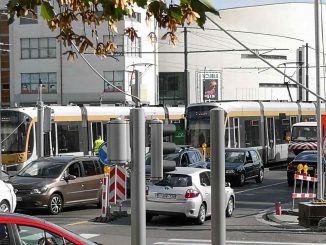
After fleeing from Spanish justice for months, and living in Belgium, Puigdemont has finally been arrested while crossing the border between Denmark and Germany while coming back from Finland.
Artículo disponible en Español | Article disponible en Français
On Friday, Puigdemont was giving a conference in Helsinki. Since his arrival to the country, he was being monitored by a few agents from the CNI (“Centro Nacional de Inteligencia”, the Spanish Intelligence Agency).
Yesterday, Sunday, he was arrested 30 km from the Danish border, after entering Germany. The main reasons for this decision were the similarities between the Spanish and the German law, as German law has a similar term for “rebellion” (“high treason” in Germany), as well as a good cooperation between Germany and Spain.
This arrest comes after Spain re-activated the European arrest warrant on the Catalonian ex-president last Friday.
German justice will have to decide in the next 60 days whether to give Puigdemont to the Spanish justice or not.
Meanwhile, in Catalonia, the independentist parties in the Catalonian Parliament (the “Parlament”) are trying to find a way to nominate Puigdemont as president of their region, even though the Constitutional Court of Spain has passed measures to avoid the possibility of nominating somebody not living in Catalonia.
The idea of nominating Puigdemont as president of Catalonia during his absence from the country isn’t a new. A few months ago, independentist parties tried to do this, forcing the Constitutional to come up with new measures, as previously mentioned.
Forced to elect somebody present, the favourite candidate so far was Turull, but due to internal disagreements, he wasn’t elected. Ironically, Turull is currently being investigated for potentially misusing 1.4 million euros of public funding during the 1-O (the illegal Catalonian referendum, “1 October 2017”), and was jailed, together with 3 other independentist leaders. They were supposed to testify in front of a judge, and, as a fifth member failed to turn up after fleeing to Switzerland, the judge decided it was better to jail them to avoid more of them leaving the country.
More on this subject:
- Puigdemont keeps lying (8/11/2017)
- Puigdemont and his ex-advisers, wanted by the justice (4/11/2017)
- Puigdemont won’t declare in Spain (2/11/2017)
- Puigdemont’s situation worsens (1/11/2017)
- Puigdemont flees to Brussels (31/10/2017)
- Catalonia declares independence just to be suspended by Spanish government hours later (28/10/2017)
- Puigdemont decides to back down (26/10/2017)
- The Spanish Constitutional nullifies the law of the Catalonian referendum (22/10/2017)
- Spanish Government applies article 155 (21/10/2017)
- Spanish Government to apply article 155 Saturday (20/10/2017)
- Catalonians’ bullshit (20/10/2017)
- Spanish Government tries to avoid applying last measure (Article 155) (19/10/2017)
- Catalonia asks for more time to answer the Government (18/10/2017)
- Spanish government to take control of Catalonia depending on Puigdemont’s reply (15/10/2017)


